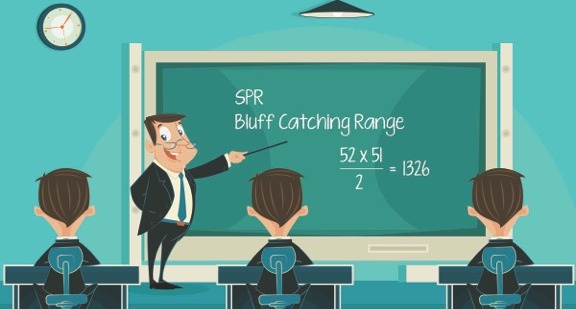






Explain Poker Like I’m Five: Freerollby Card Player News Team | Published: May 13, 2015 |
|
|

When you’ve played poker for years, it’s easy to forget that technical poker speak may as well be a different language. Many players just picked up a deck of cards for the first time and are wondering what the hell a reverse implied range merge against a large stack to pot ratio is.
Maybe you are new to poker as well and want to start analyzing the game at a deeper level, but the lingo and foreign concepts get in the way. To help, _Card Player_ brings you this brand new series, Explain Poker Like I’m Five.
Every issue, we’ll take on a new term or idea, perhaps one you might come across elsewhere in this very magazine, and we’ll break it down to its simplest components.
The Concept: Freeroll
What Is It?
A situation where a player is guaranteed to at least split the pot with another player, but also has outs to win the entire pot depending on the run out of the cards. Freerolls can happen in hold’em, but happen more frequently in split-pot games when one player has locked up a low, but can also make the best high hand.
Okay, Now Explain It Like I’m Five
A freeroll happens when you are guaranteed half the pot, but could win all of it with the right cards.
Give Me An Example (Or Two)
Let’s say you are dealt Q J
J in a local no limit hold’em cash game. You raise on the button, and are called by the big blind. The flop comes down K
in a local no limit hold’em cash game. You raise on the button, and are called by the big blind. The flop comes down K 10
10 3
3 and your opponent checks. You bet, and he calls. The turn is the 9
and your opponent checks. You bet, and he calls. The turn is the 9 , giving you the nut straight and a flush draw. Your opponent checks, you bet, and your opponent check-raises all in.
, giving you the nut straight and a flush draw. Your opponent checks, you bet, and your opponent check-raises all in.
You snap call with the nuts, and are discouraged to see that your opponent also has the nuts, holding Q J
J . But wait… Even though you are guaranteed to at least split this pot, you can still win the whole pot with any heart on the river! Now you are freerolling.
. But wait… Even though you are guaranteed to at least split this pot, you can still win the whole pot with any heart on the river! Now you are freerolling.
If the river is the 7 , there is no harm done. Both of you take back your money, chopping up the pot, and your opponent breathes a heavy sigh of relief. However, if the river is the 6
, there is no harm done. Both of you take back your money, chopping up the pot, and your opponent breathes a heavy sigh of relief. However, if the river is the 6 , for example, now you have won your freeroll and get all of what’s in the middle while the guy across the table curses his luck.
, for example, now you have won your freeroll and get all of what’s in the middle while the guy across the table curses his luck.
Now let’s play a hand of Omaha eight-or-better. You see a flop of A 7
7 5
5 holding 4
holding 4 4
4 3
3 2
2 and manage to get it all in against an opponent holding A
and manage to get it all in against an opponent holding A 4
4 7
7 7
7 . As you can see, you are already holding the nut low, and cannot be counterfeited. Therefore, you are guaranteed to win at least the low half of the pot.
. As you can see, you are already holding the nut low, and cannot be counterfeited. Therefore, you are guaranteed to win at least the low half of the pot.
Your opponent is currently ahead with a set of sevens for the high half of the pot, but his hand is vulnerable. Most clubs and any deuce, trey, or four will give you the best hand with either a flush or a straight and will award you the high half of the pot as well. This is another example of a freeroll.
Other than having an opponent drawing dead, freerolling is the ideal situation to find yourself in, because it allows you to win an entire pot without any risk whatsoever. You can essentially get a 100 percent return on your stack investment with no chance of losing any portion of your chips. ♠
Features
The Inside Straight
Strategies & Analysis
Commentaries & Personalities